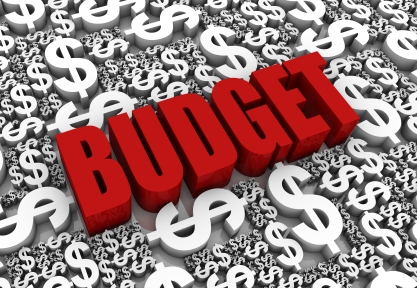Saying Yes To A Better 2013 Budget
 For most people budgeting isn’t a fun chore as it entails setting aside money and having to work with what is left after stashing. However, it can mean the difference between achieving one’s financial goals and digging into a debt hole.
For most people budgeting isn’t a fun chore as it entails setting aside money and having to work with what is left after stashing. However, it can mean the difference between achieving one’s financial goals and digging into a debt hole.
If you’ve tried budgeting, yourself, you definitely know the challenges it posits. Yet, you also know how helpful it is in taking control of your money and building your wealth. So if you want to step up your budgeting a notch further this year, and effectively implement it for the following years, it has to become habitual. And for you to do that, below are some pointers you need to take into heart.
Build your emergency fund
Traditionally, budgeting is all about tracking down expenses, eliminating debt and then once the budget is balanced, establishing an emergency fund. However, you can speed up the process by creating a partial emergency fund that you can dip into in case something uneventful happens. Ideally, you should have a portion of your monthly savings in a liquid account ready for surprises. This partial emergency fund will serve as your buffer as you fill out the other areas in your budget. Your emergency fund can also be used in place of credit cards during emergencies.
Don’t mind perfection and keep things simple
Consider budget as a target. That means, you won’t be able to perfect it during the first few months. If you can’t get the perfect balance in your finances, the next goal should be to get as close to it as possible. Learn to make the necessary adjustments and keep everything simple. Once you get the complexity out of the picture and you get used to budgeting, it will become a part of your life that you won’t overlook.
Watch your spending
If you don’t document your spending, you will not know if you are sticking to your budget. So find a way to track how you spend your money in a manner that you can easily follow through. You can take the pen-and-paper approach, use a spreadsheet or use an online application that is especially designed for tracking expenses. When you are able to figure out your expenses, you’ll know where to make adjustments.
Indulge
Of course, when budgeting it’s not just all about saving money. You also need to leave some room to indulge yourself (within reason, though). For instance, if the only fun you can afford in your budget is to buy a book each month, at least allow yourself that. Consider this as an incentive for your efforts. If you don’t reward yourself, you might feel constricted which will make it difficult for you to stick to your budget in the long run.
Keep your eye on the prize
Another trick that will help you to properly build your budget is to focus on the rewards you can reap from your efforts. Don’t just look at what you have to cut and give up as this will make budgeting a distasteful chore. Instead, list down short and long-term goals to keep you motivated. Over time, as you see some of your goals coming to fruition, you will definitely feel more motivated to work harder on your budget.
The guest post above was contributed by Ericka in behalf of www.financial-wise.co.uk. Ericka is a freelance writer who has penned numerous articles for different websites. However, it is her passion to learn and share her knowledge about money management, inspiring her to write helpful posts related to personal finance.












